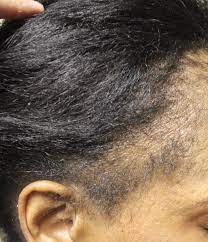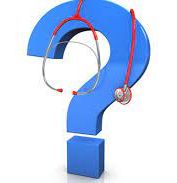
Hormonal Imbalance Causes, Symptoms, and Effective Solutions
Hormonal imbalance is a common concern affecting many individuals, disrupting the body’s delicate equilibrium of essential messengers. Understanding the intricacies of this condition can provide insights into its causes, symptoms, and potential solutions.

Hormones are the body’s messengers, regulating various essential functions, from metabolism and growth to mood and reproduction. Maintaining a delicate balance of hormones is crucial for overall health and well-being. However, sometimes this balance can be disrupted, leading to a condition known as hormonal imbalance. In this post, we’ll explore the causes, symptoms, and potential solutions for hormonal imbalance.
 What is Hormonal Imbalance?
What is Hormonal Imbalance?
This condition occurs when there is an excess or deficiency of certain hormones in the body. These hormones include insulin, estrogen, progesterone, testosterone, thyroid hormones, and more. These imbalances can affect both men and women, although they are more commonly associated with women due to factors like menstruation, pregnancy, and menopause.
Causes of Hormonal Imbalance
The condition can occur for a variety of reasons, and they can affect individuals of all ages and genders. Here are some common causes:
1. Stress: Chronic stress can trigger the release of cortisol, the stress hormone, disrupting the balance of other hormones in the body.
2. Diet: Poor eating habits, such as excessive consumption of processed foods, sugary snacks, and a lack of essential nutrients, can lead to hormonal disruptions.
3. Physical Inactivity: A sedentary lifestyle can contribute to weight gain and insulin resistance, which may disrupt balance of hormones in the body.
4. Medications: Certain medications, such as birth control pills, can influence hormone levels.
5. Medical Conditions: Conditions like polycystic ovary syndrome (PCOS), thyroid disorders, and diabetes can also disrupt balance of hormones in the body.
6. Age: Hormonal changes are a natural part of aging, with menopause in women and andropause in men leading to significant hormonal shifts.
Common Symptoms of Hormonal Imbalance
It can manifest in various ways, and the symptoms may differ depending on the specific hormones affected. Some common signs include:
1. Irregular Menstrual Cycles: Women may experience irregular periods or heavy bleeding.
2. Weight Gain: Hormonal imbalances can lead to weight gain, especially around the abdomen.
3. Mood Swings: Fluctuations in hormone levels can affect mood, leading to increased irritability, anxiety, or depression.
4. Fatigue: An imbalance of hormones can cause chronic fatigue, making it difficult to perform daily tasks.
5. Hair Loss: Changes in hormone levels can contribute to hair loss or excessive hair growth (hirsutism).
6. Acne: It may also trigger acne breakouts, especially in adults.
7. Digestive Problems: Hormonal imbalances may also affect digestion, leading to issues like bloating and constipation.
Solutions for Hormonal Imbalance
Addressing this condition often requires a multifaceted approach. Here are some strategies that can help:
1. Lifestyle Modifications: Incorporating a balanced diet, regular exercise, and stress-reduction techniques like meditation or yoga can improve the condition. Ensure you get adequate sleep, limit alcohol consumption, and avoid smoking.
2. Medication: In some cases, medications may be prescribed to regulate hormone levels, such as birth control pills for women with hormonal disorders or hormone replacement therapy for menopausal women.
3. Nutritional Supplements: Vitamins and minerals, such as vitamin D, omega-3 fatty acids, and magnesium, can support hormonal levels when taken as supplements. Focus on a balanced diet rich in whole foods, fiber, and healthy fats. Avoid excessive sugar and processed foods.
4. Herbal Remedies: Some herbal supplements, like black cohosh for menopausal symptoms or chasteberry for menstrual irregularities, may help regulate hormones.
5. Consult a Healthcare Professional: If you suspect a hormonal imbalance, it’s essential to consult a healthcare provider who can perform tests and recommend appropriate treatments or lifestyle changes.
6. Exercise: Regular physical activity can help regulate hormones and reduce stress.
7. Stress Management: Techniques such as meditation, yoga, and deep breathing can help lower cortisol levels and promote hormonal balance.
Maintaining hormonal balance is crucial for overall health and well-being. While hormonal imbalances can be caused by various factors, addressing them with lifestyle changes, medications, or supplements can help restore equilibrium. If you’re experiencing symptoms of hormonal imbalance, seeking professional guidance is the first step toward finding a solution and improving your quality of life.
Disclaimer: The information provided in this content is for general informational purposes only. It is not intended as medical or healthcare advice, diagnosis, or treatment. Always seek the advice of a qualified healthcare professional with any questions you may have regarding a medical condition or healthcare decisions.
















